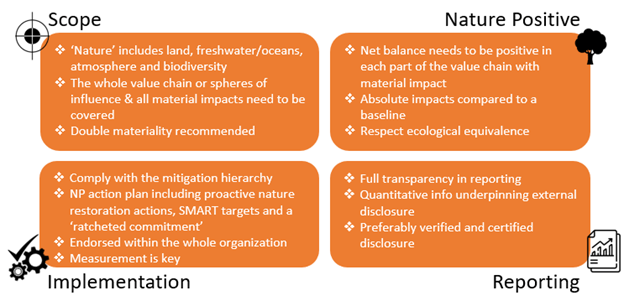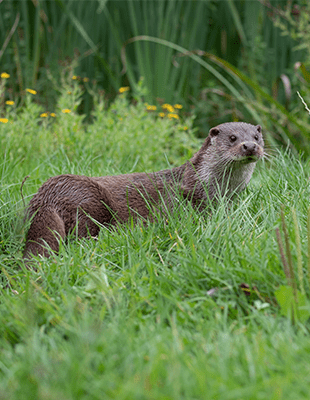A close look at the EU B@B Platform’s webinar series on nature positive
When nature is in crisis, everyone is at risk. This is why organizations and advocates brought forward the Global Goal for Nature, a practical approach that would commit governments to be ‘nature positive’ by 2030. But what does nature positive mean? In simple terms, it means to halt and reverse nature loss so that nature is visibly and measurably on the path of recovery. Despite the support from governments and companies, nature positive needs to be defined in a business context if we want to see a much wider adoption of it.
The European Business@Biodiversity Platform (EU B@B Platform) works with and helps businesses integrate natural capital and biodiversity considerations into business practices at EU level. Arcadis helped EU B@B Platform to develop a working definition of nature positive based on insights from discussions and academic papers on this topic. This collaboration resulted in a working definition composed of 20 principles that cover scope, ‘net positive’, implementation and reporting. A summary is given in the figure below.

Checking for possibilities
EU B@B Platform conducted a dedicated webinar series to shed light on how businesses have been delivering nature positive initiatives through case studies from nine organizations. The webinars also focused on discussions around the organizations’ views on the nature positive’s working definition and whether it is possible to truly become nature positive or if businesses would rather adopt a journey towards nature positive with the aim to become as close as possible.
All presenters agreed that defining nature positive in concrete terms is very much needed. This will help them better apply the concept in their operations in the (near) future. Organizations that presented their case studies completed a reporting matrix. This matrix was developed to demonstrate progress toward achieving nature positive in each nature component (climate, water, biodiversity and land/soil) and various parts of the value chain (supply chain, direct operations, downstream). The case studies showed that businesses are most confident they can become climate neutral (or positive), even throughout their value chain. This might be due to the clear science-based targets that exist for climate. Businesses generally believe that they can achieve nature positive in their direct operations, but the same can’t be said for their supply chain (upstream and downstream operations).
Traceability is key to a nature-positive supply chain. Businesses need to work with their suppliers to reduce the impact of raw materials. While larger companies can put pressure on suppliers and the sector, smaller ones are more likely to feel they have no control on their supply chain and that nature positive is difficult to achieve here. Businesses feel the least confident that nature positive is achievable in downstream operation because of the many uncertainties around it and the fact that a product’s end of life is often out of their control.
The next steps forward
The findings of the webinar series and the working definition of nature positive were presented at the European Business and Nature Summit on 18 and 19 October 2022.
Amid these developments and actions to further the adoption of the nature positive concept, there are still important steps that need to be taken. For one, its definition must be refined and tailored to fit the business context. There also needs to be clear guidance for companies to measure nature positive in their operations to better assess how they are progressing. Moreover, nature positive should be embedded in external disclosure initiatives by clarifying how its reporting is done. The 2030 target set in the Global Goal for Nature is still a few years away, but every day of inaction can have irreversible impacts on us all.






